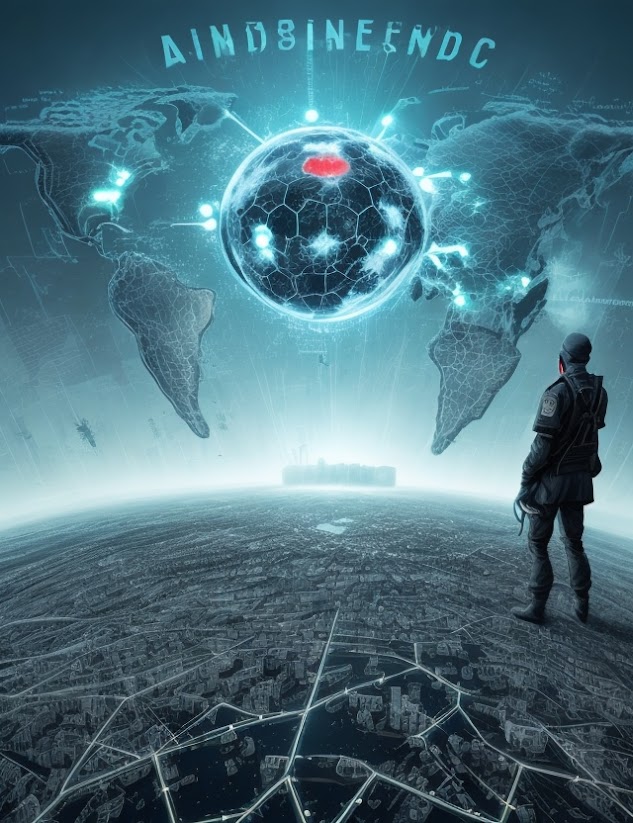Unlocking the Metaverse: A Brave New World of Dining Experiences
Picture this: you walk into a bustling restaurant, the aroma of sizzling dishes fills the air, and the buzz of conversations surrounds you. But here's the twist—it's not just any restaurant. You've entered the metaverse, a limitless digital realm where dining experiences transcend the boundaries of the physical world.
In this brave new world, restaurant owners and marketers are discovering innovative ways to engage their customers, and professionals in the culinary industry are staying ahead in the digital age. How are they achieving this? The answer lies at the intersection of neuropsychology, neurocopywriting, and the metaverse.
The Intriguing Landscape of the Metaverse
In the not-so-distant past, advertising was all about traditional billboards, print media, and television commercials. But fast forward to today, and we find ourselves immersed in a digital era where advertising takes on a whole new dimension. The metaverse is where the action is, and it's nothing short of a lawless, boundless virtual world.
What's making marketers, restaurant owners, and tech giants like Meta flock to this new advertising haven? The European Parliament recognizes the metaverse as an ideal environment for advertising, but what exactly makes it so enticing? It's time to peel back the layers and explore the metaverse's potential.
Avatars: Your Digital Alter Ego
One of the metaverse's central elements is the avatar. These digital personas serve as your representation in this limitless realm. Imagine having the power to customize your avatar's appearance to your heart's desire. While options may be vast, the choices available are often determined by the metaverse's developers.
What does this mean for brands and advertisers? The world of avatars presents unique legal challenges and opportunities, such as licensing for avatar use. It's a dance between user-generated content and developer-created content, and the rules are still being written.
Virtual Items: The Metaverse Marketplace
Step further into the metaverse, and you'll discover a marketplace brimming with virtual items. Some of these items draw inspiration from the real world, mirroring tangible products we encounter every day. But here's the twist—how do intellectual property rights apply when digital replicas of real-world items are at play?
Can the metaverse replicate real-world products without infringing on copyrights? While legal precedents suggest it may be permissible in some cases, the specifics vary widely.
Contracts in the Metaverse: A New Frontier
To venture into the metaverse, contracts become the backbone of advertising agreements. These contracts are far from the standard user agreements we're accustomed to in the physical realm. They often involve metaverse providers, brands, and sometimes, marketing agencies. Even influencers, both real and virtual, have roles in promoting brands and the metaverse itself.
What do these contracts entail, and how do they differ from traditional agreements? The complexities are not to be underestimated.
Influencers: Bridging the Real and Virtual Worlds
Influencers play a pivotal role in populating the metaverse with users. They act as the bridge between real-life and virtual presence, enticing their followers to join this digital frontier. But here's where it gets interesting—it's not just human influencers making waves. Virtual influencers are stepping into the spotlight as well.
How do influencers, both human and digital, shape the metaverse's landscape? It's a fusion of the real and unreal.
The Journey Continues
As we journey deeper into the metaverse, the complexities and possibilities multiply. The boundaries between the physical and virtual blur, and the advertising landscape undergoes a transformation that challenges existing legal frameworks.
In this brave new world, the incorporation of AI promises even more exciting changes. Personalized recommendations and immersive experiences await, but the legal realm is racing to catch up with technological advancements.
What's next in this dynamic field? The future is uncertain, but one thing is clear—the metaverse has opened a door to uncharted territories in advertising.
Conclusion:
The metaverse is an ever-evolving canvas for advertising innovation. As technology continues to push the boundaries, the legal landscape adapts in tandem. The journey has just begun, and the metaverse holds countless opportunities for brands, influencers, and marketers willing to embark on this digital adventure.
Stay tuned as we navigate the metaverse's intriguing twists and turns, uncovering the secrets to successful neuropsychological advertising in this limitless world.




.jpg)

.jpg)







Comments
Post a Comment